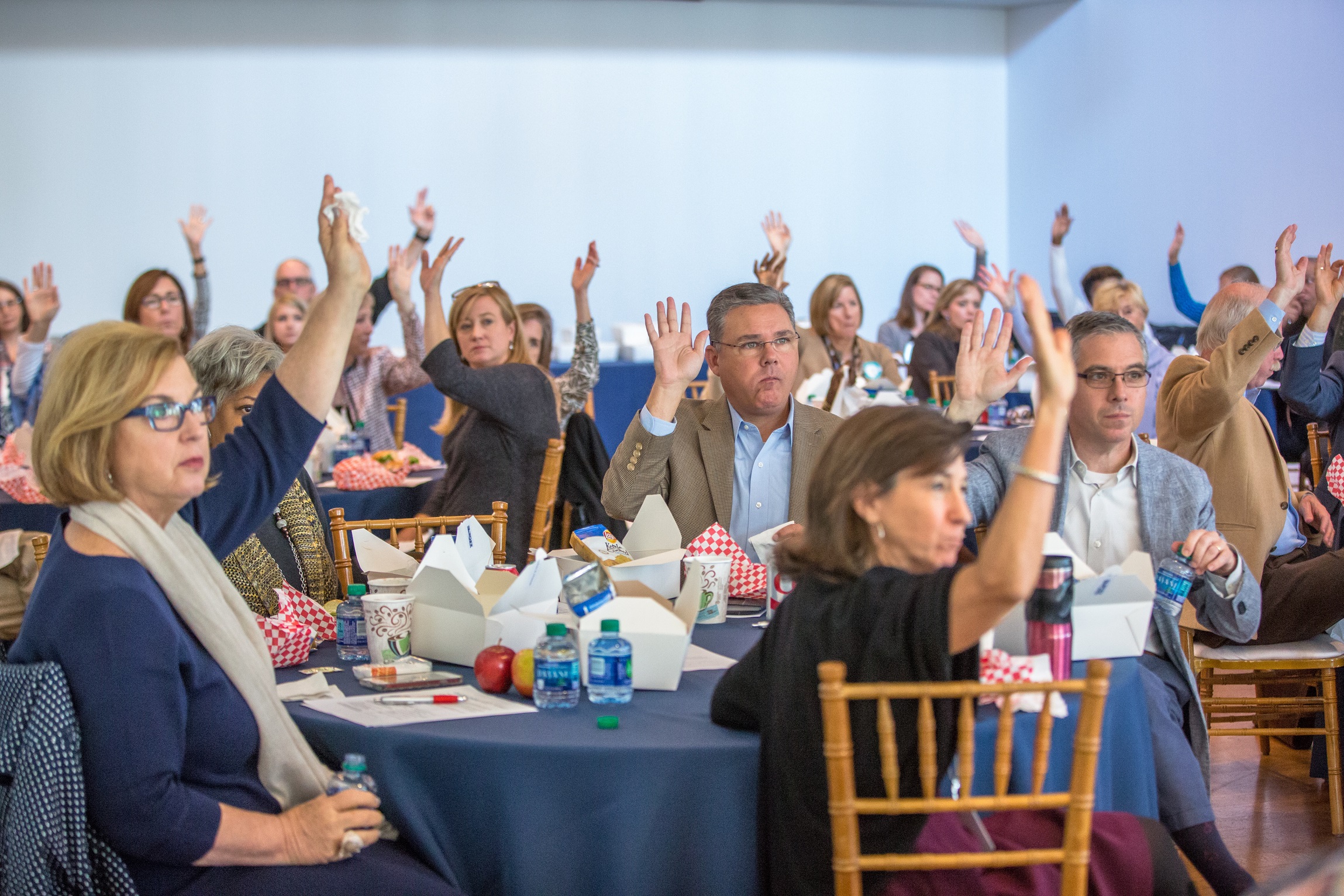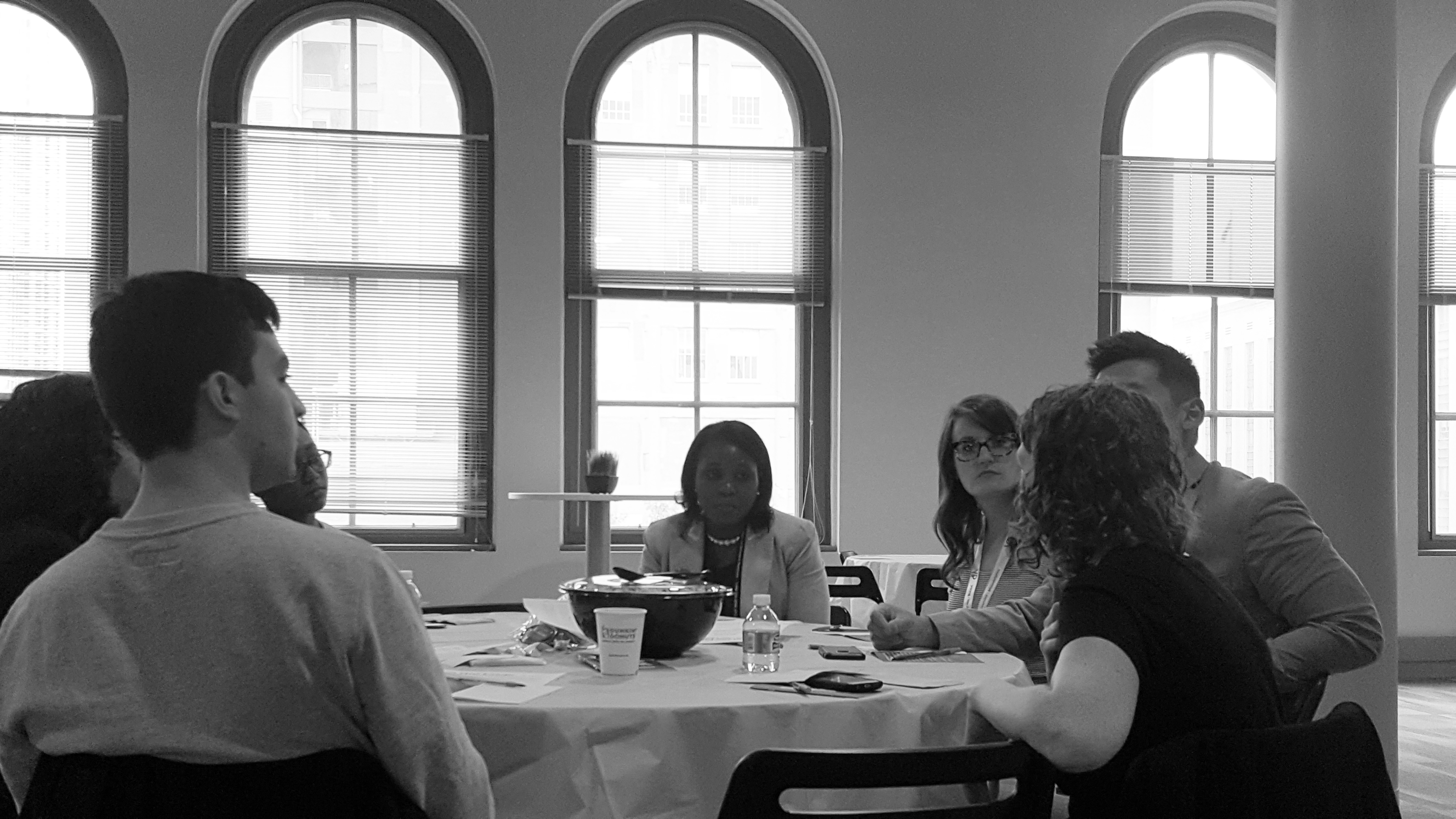
Three things community foundations learned from On the Table
Today, Knight Foundation is announcing a $2 million reinvestment in the On the Table initiative to connect neighbors over mealtime conversations in cities.
As a national foundation with deep local roots in 26 Knight cities, we believe informed and engaged communities are the building blocks to a successful democracy. We have seen across our cities the power of breaking bread – allowing a platform for solutions-oriented conversations while capturing data from those conversations to inform decision makers and the community at large. On the Table invites residents to dine together, discuss community issues and solve problems. It’s an initiative that truly gets to the heart of informed and engaged communities.
This initiative would not have been possible without community foundations, which were the key leader and partner in pulling off the events across the country. And that makes sense – they know their community. They managed the day to day and were the key partners in the cities. We have learned a lot from their experience. Below are three learnings from community foundations on pulling off a successful On the Table:
- Plan ahead for the data: This is easier said than done, but it’s powerful to have thousands of your community members providing feedback on your community. This is rare, so take advantage of it. However, data is limited to the way in which it’s used, so come up with a plan beforehand. Some community foundations planned to leverage the findings for their own strategic grant-making. For example, Long Beach is structuring funds and a focus around the most important issues they heard from their community, with homelessness and housing rising to the top. In Lexington, Blue Grass Community Foundation planned ahead of time to imbed the City of Lexington planning department in the conversations. Consequently, the city used the information for their 2025 plan and for other important decision-making around development issues (1/3 of participants said a top priority was to protect the bluegrass landscape). None of this would have happened without the foundation partnering with the city on harnessing the data.
- Outsource capacity support: It’s hard to pull off this initiative without capacity support. Let’s be real – On the Table is a lot of work, especially for a small organization. So many community foundations hired a local organization for support. And dependent on needs, some hired a grassroots organizer while others hired a local PR/media firm. This was critical for supporting the outreach of the initiative, increasing numbers and diversity while ensuring a successful, inclusive event. We also saw that within each community, social media went through the roof. Literally, millions of impressions were made and for some of our small community foundations, this is hard to sustain. So plan accordingly to give some extra support to your communications team (or person) and this will not only support the day of the initiative but will also sustain the followers in the future for your organization.
- A Branding Opportunity: We learned from the surveys that in many communities nearly half of On the Table participants had never even heard of their local community foundation. Wow, let that sink in for a second – what an amazing branding opportunity for the community foundation! To be clear, that’s not the purpose of the initiative, but it is an opportunity that allows for the community foundation to be front and center. For example, Legacy Foundation in Gary, Indiana, gave out little notebooks with their name to each participant. They also prepped each host with a one line sentence to read about the foundation. What do you want that one line to be – well that’s important for you to figure out beforehand. It allows for participants to hear about the community foundation and understand that it’s a resource in the community.
Overall, On the Table served as an amazing opportunity for community foundations to be front and center, engaging with their community. Seize that opportunity and plan accordingly!
-
Community Impact / Press Release
-
Community Impact / Article
Recent Content
-
Community Impactarticle ·
-
Community Impactarticle ·
-
Community Impactarticle ·



